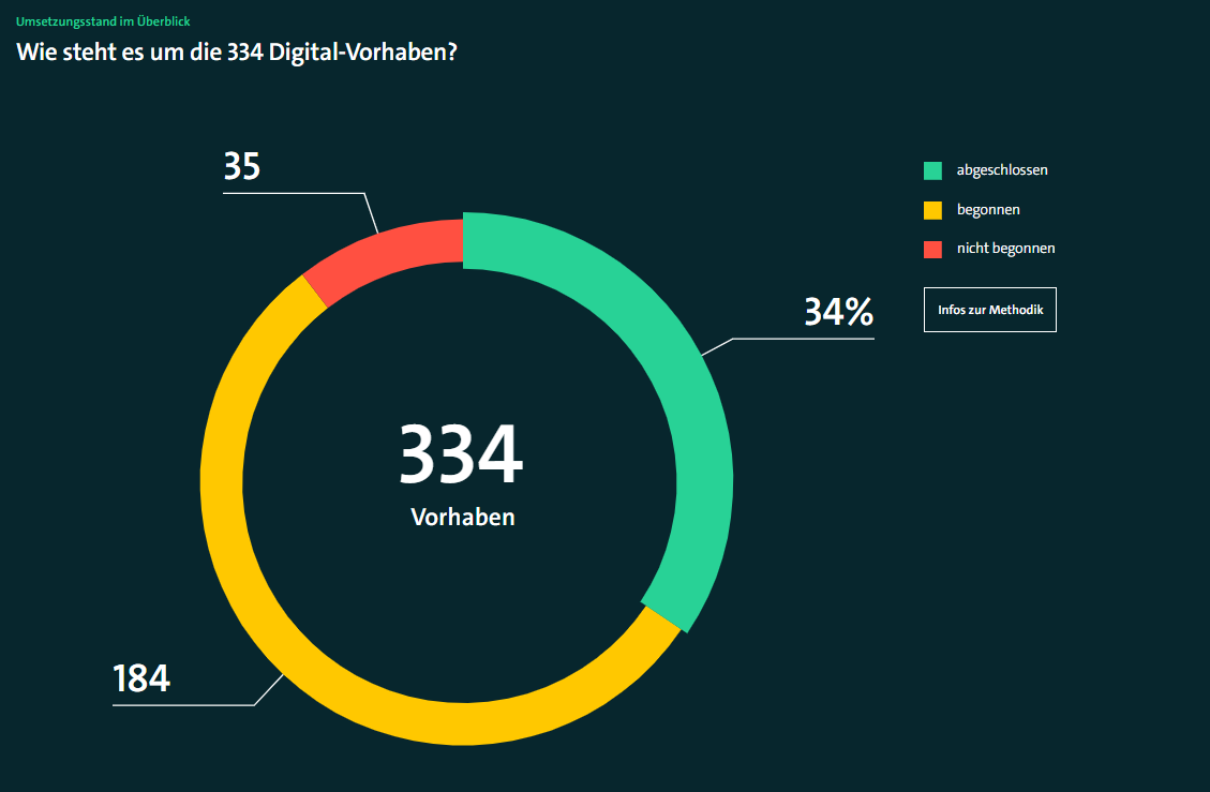Page content
Digital Policy Monitor: What is the state of digitalisation in Germany?

Results of the Digital Policy Monitor update (January 2025).
Just in time for the start of the year, Bitkom has published another update of its Digital Policy Monitor. The federal association's analysis provides an ongoing overview of current digital policy developments in Germany.
The figures from the last quarter of 2024 clearly show that the signs are pointing towards acceleration at the end of the legislative period. In Q4 2024, a total of 11 political projects of the incumbent federal government were completed. Three projects were implemented before and eight after the end of the traffic light system. In total, 115 of 334 digital policy projects were completed in the current legislative period - around 34 per cent. A further 184 projects are still being implemented and 35 have not yet been started.
Innovation boost for the public sector
In the public sector in particular, ground-breaking digital policy projects have been advanced in recent months. Important successes include the reintroduction of digital employment contracts, a strategy for autonomous and networked mobility and the further development of the Smart City phased plan.
‘It's good that the federal government was able to get some important projects to the finish line in the weeks before the new elections,’ says Bitkom President Dr Ralf Wintergerst. ‘It is important that the new federal government gets to work quickly and focusses on digital policy. Above all, our administrations must be brought up to speed and offer their services to companies and private households digitally across the board.’
New legislature with its own digital ministry
According to Bitkom President Dr Ralf Wintergerst, an independent digital ministry equipped with all the necessary rights and resources is needed in order to implement the outstanding projects quickly in the coming legislative period.
The list of digital policy projects that have not yet been completed or are outstanding is long: the digitalisation of the ID card, the further development of the cybersecurity strategy to modernise state network infrastructures and the improvement of digital accessibility are among the projects currently being implemented.
Projects such as digital car park control, the development of a concept for a nationwide justice cloud and the creation of digital identities in the corporate context remain unaffected.
Become an exhibitor at #SCCON25
As a driving force for the future of digital administration and for equal digital living and working conditions in cities and rural areas, the Smart Country Convention is a must for all stakeholders who actively advance the digital transformation. Are you interested in advancing the digitization of our cities and municipalities too? Join us and position your company or municipality as an expert in digitalization in the public sector.



